DIAMOND SHOALS
Deep purple water with streaks of sparkling azure concealed a war grave 110 feet beneath the surface. A vessel plying the waters off the Outer Banks on Saturday was hunting for what was once the hunter, a German submarine sunk 66 years ago by depth charges dropped by an American bomber.
Divers on the National Oceanic and Atmospheric Administration's new 41-foot catamaran were geared up and waiting to descend to survey the U-701, the most intact of discovered U-boats sunk off the North Carolina coast.
Boat captain Chad Smith, NOAA's East Coast vessel coordinator, slowed the catamaran's motor and circled the position above where the wreck lay mostly buried on the ocean floor about 22 miles off Avon.
"All right, guys, start moving toward the stern," dive master Tane Casserley said to the five divers. The boat's motor was cut.
"Dive, dive, dive!"
Casserley, a NOAA archaeologist and diver who is serving as the principal co-investigator in the research expedition, watched as the men disappeared under the water. The divers on the vessel were part of a 19-day project to study the U-701 and two other submarine wrecks sunk off the coast in 1942 during the Battle of the Atlantic.
"Ultimately, the goal is to protect all the wrecks around here," said Casserley, the national maritime heritage coordinator for NOAA's Office of the National Marine Sanctuaries. "What we want to stop is the looting and souvenir hunting that goes on."
On their second attempt, the divers, some carrying huge cameras as well as the 120 pounds of tanks on their backs, located the U-701. Visibility was good, they said, but the strong 2-knot current made it a challenge to survey the wreck.
"Everything is on it - all the hatches, everything, " John
McCord, education programs coordinator with the University of North Carolina Coastal Studies Institute, said as he peeled off his diving gear. "I had my feet dug in and I was leaning as far back as I can. Every time I'd sit back and film, it would slowly push me back up."
Exploration of the U-352 off Morehead City began the week of July 7, but four days were lost to bad weather. The U-85 off of Nags Head, as well as the U-701, will be studied this week.
NOAA and partners from the state, the Minerals Management Service, the National Park Service, East Carolina University and the UNC i nstitute have combined their areas of expertise in surveying and photographing the vessels.
"Never has a detailed archaeological survey of the wrecks been done," David Alberg, superintendent of the Monitor National Marine Sanctuary, said in an interview before the expedition. "This is step one. We're not digging, and we're not touching the site."
At least 10 German sailors are believed to be entombed in the U-701. The U-352 also contains war dead. U.S. and international policies prohibit disturbance of maritime graves.
The U-85, the first U-boat submarine sunk in U.S. waters, and the U-352 have been popular recreational diving sites for years; each has been picked clean of artifacts. But until 2004, the U-701 was undisturbed because only one diver knew the coordinates, and he kept them secret.
After Hurricane Isabel partially unburied the submarine, word got out about its location. NOAA worked with other government agencies and members of the diving community to create a diving preserve at the site. Within months, a dive team discovered that numerous parts of the wreck had been stolen.
But still, the U-701 retains much of its original condition, and NOAA has maintained its goal of creating a sanctuary for the wreck.
"This is the one that has the most chance of being preserved and protected for the American public," Casserley said.
The other two submarine sites may also qualify for cultural protection, he said. A goal of the project is to have the wreck sites listed on the National Register of Historic Places as well as to establish diving sanctuaries. There are 14 protected areas in the National Marine Sanctuary System.
"We're not limiting divers by any means," Casserley said. "We want divers to enjoy them. We just don't want them to take anything from them."
Researchers plan to post the data learned from the expedition online, he said. And next year, the expedition will be surveying a yet-to-be-learned number of Allied wrecks sunk in waters off the North Carolina coast.
The project is a significant step in preservation of maritime history and culture, said Joe Hoyt, a maritime archaeologist contractor for NOAA.
"It's one of the closest places where the war came home to America continuously," he said.
"It's really the only place where you can visit the battlefield of the Atlantic."
Catherine Kozak, (252) 441-1711, cate.kozak@pilotonline.com
WEATHER NOTE
Hurricane linked to bigger waves
Grab your wet suit, reapply the wax to your surfboard and head for the beach as the waves on the Cape are expected to increase in size over the next few days.
"This is the biggest it has been all summer," said Matt Rivers, owner and manager of the Pump House Surf Shop in Orleans. "I have heard the waves could get close to 15 feet, but that is rare for this time of year."
The surge in wave strength is being attributed to Hurricane Bertha, a Category 1 tropical storm that was spinning in the Atlantic Ocean about 225 miles southeast of Bermuda yesterday.
Alan Dunham, 54, a meteorologist with the National Weather Service in Taunton said yesterday that the Outer Cape and Nantucket should feel the affects of Bertha well into this week.
"The Cape can anticipate bigger seas and the possibility of rip currents along the beaches," he said. "Bertha is slow-moving, and the waves should last as late as Wednesday."
Bertha has been traveling north-northwest at about 5 mph and had sustained winds of about 90 mph yesterday. It has been fluctuating between a Category 1 and Category 2 storm since it became the first named storm of the Atlantic hurricane season on July 7.
Casey Sullivan, 17, of Lunenburg watched her brother catch a wave yesterday as she peeled off her wet suit after surfing Coast Guard Beach.
"The waves here mean business," Sullivan said. "The current is strong today and the waves are more powerful."
Lifeguards Keith McFarland, 36, of Sunderland and Dave Berman, 64, of Eastham have seen an increase in surfers with the growing waves over the past several days. "I saw about 55 surfers at 9:15 a.m. today at Marconi Beach. That's the most I have seen in a while," Berman said.
McFarland is somewhat skeptical about Bertha's impact on the Cape's surf, but he reported seeing about 10 more surfers in the water yesterday than the previous day. "I think this is all from the rumor mill," he said. "Whenever there is an eastern wind, it can cause an increase in swells."
The arrival of larger swells often translates into a decrease in people signing up for surf lessons and board rentals, Rivers said.
"Some people aren't as comfortable in the water when the waves are over four feet," he said. "Ideally for business, we want one-to-three-foot waves for lessons and rentals, but board sales do increase when the swells come up."
Jim Burke, 44, of Wilton, Conn., said he hopes the waves keep growing while he visits Chatham for the weekend.
"I want them to be head high — those are a lot of fun for me," Burke said. "I am hoping the waves have a decent shape and the beach isn't too crowded, but that's wishful thinking."
Material from The Associated Press contributed to this report.
MARITIME NOTE
As the Massachusetts Legislature tightens its death grip around the port of Boston, a key 'niche' intermodal hub in the northeast teeters on the brink of obsolescence.
I owe everyone an apology this week. Last week, as a sign-off from my weekly column, I trumpeted, "Massachusetts legislators vote to move Boston Harbor to Long Island Sound. Stay tuned!" Now, everyone knows that you can't vote to physically move a port from one place to another. That's just silly. The port of Boston will always reside right where it is at, just as it has for the past 400 years. Twenty years from now, however, and if the current situation on Beacon Hill does not radically change, Boston's waterfront will consist primarily of luxury, pier side condominiums, trendy shops and maybe a pleasure boat marina or two. It doesn't have to be this way.
As one of the more unusual ports in the country, and not coincidentally one of its safest, Boston is home to a myriad of cargo interests, from LNG to automobiles to gasoline and a raft of other miscellaneous goods. A popular and profitable cruise ship trade also makes port calls here. The port will never be a major cargo hub, but it is a key cog in the local MASSPORT machine and is, in no small part, important to local economy. The past three years have seen much turmoil in the harbor, most of it based around local disputes centering on who should and should not dock vessels, under what authority that might occur and at what price and under what conditions all of that might happen. But, there's more than one issue on table.
At issue (and most visible) is the question of whether the Commonwealth should license local so-called "docking masters," especially in the roiled wake of the COSCO BUSAN incident. The local contractors – most of whom work for one local tug boat company – dock and undock large, deep draft traffic. None of them are certificated by the state to do so. Boston marine pilots, in contrast, all licensed by the state, guide traffic in and out Boston. They are also qualified to dock and undock these vessels, and often do so. To my knowledge, there hasn't been a single accident of note associated with the pilots over the course of the last ten years. They charge the state-mandated fee of $350 per movement to dock or undock vessels; a private docking master bill can triple that amount.
Few in the Boston maritime community would dispute that the local, so-called docking masters should be licensed in Massachusetts. That they are allowed to direct ships without these certifications arguably leaves the Commonwealth open to significant liability on the very waters that they are supposed to be controlling commerce. The problem stems from the terms under which docking masters could eventually be licensed. These individuals want to remain virtually independent of the existing regulatory environment, charge fees to shippers unencumbered by state oversight and operate under conditions that would exclude them from the same degree of liability that local harbor pilots toil under. With few exceptions, the balance of the waterfront community opposes these terms.
The effort to certify the docking masters has failed miserably in the past, and when bill(s) tailored to meet the criteria of the docking masters have been turned aside in the Legislature, attempts to attach similar language to other, unrelated bills have become the weapon of choice. At the same time, the local harbor pilots are desperately trying to enact the first fee increase in ten years for local pilotage. That effort remains stymied and the bill held hostage in the State House. Today, special interests have attached a rider to that bill which would likely signal the end of competitive vetting of future pilot candidates. The implications for the port of Boston, down the road, are ominous.
The proposed rider to Pilot's rate bill (S 515) reads as follows: "…the pilot commission shall adopt regulations providing for preference to veterans as defined in clause Forty-third of section 7 of chapter 4 of the General Laws and those who were honorably discharged from or currently serving in the Armed Forces of the United States, including the Army, Navy, Air Force, Marine Corps and Coast Guard and the National Oceanic and Atmospheric Administration Officer (sic) Corps. If an active duty member or veteran applicant has a valid United States Coast Guard-issued Unlimited (sic) Master's License or First Class Federal Pilotage endorsement for any part of Boston Harbor, he shall be eligible for preference for appointment as a state-commissioned pilot apprentice." In general terms, the provisions of this language are tailored specifically for one or two individuals who probably could not otherwise make the bar. If the language is enacted, any individual with veteran status with twelve trips in and out of the harbor will now move to the front of queue, regardless of his or her experience in matters of shiphandling or other related skillsets.
The proposed amendment has put the local pilot association in an unenviable position. Like their Coast Guard brethren who were, earlier this year, reluctantly forced to oppose their own authorization bill due to several flawed amendments, the Boston Marine Pilots may now be forced to abandon a pay raise or allow the beginning of the degradation of local pilot skills. The proposed "preference" language, wrapped in red, white and blue, will not serve the common good in terms of safety, transparency of the pilot selection process, or the needs of a port that needs to continue to show itself as a safe and attractive place to deliver and load cargo. At a time when the national scrutiny of pilot credentials and certifications is ramping up significantly, the Commonwealth of Massachusetts is preparing to dumb down the curriculum.
The future of Boston Harbor as a viable commercial cargo hub can be summed up neatly by three matters now before the state legislature; namely, (a.) the licensing of docking masters, (b.) a rate hike for the local marine pilots, and (c.) an effort to politicize the selection of future marine pilots. And, the rate bill isn't going anywhere unless everyone else gets what they want. In the meantime, the ability of local pilots to adequately fund the infrastructure necessary to a safe and efficient pilotage system has been seriously crippled.
No doubt, the laughter in Portland, ME, Providence, RI and other nearby ports carries long and loud across the water. And, if anyone doubts the errant course that Massachusetts find itself headed on, they need to look no farther than Long Island Sound, where 25 years of benign regulatory neglect has left the pilot system in organizational shambles, with no viable apprentice candidates to take the place of the remaining pilots when the bulk of them reach retirement age in the not-too-distant future.
Within the past two weeks, a bill designed to eliminate the Harbor Maintenance Tax was introduced in Washington. The bipartisan legislation, introduced in the U.S. Senate, would exempt coastwise shipping of containerized cargo from the Harbor Maintenance Tax (HMT). Stated simply, the law, if enacted, would almost instantly revitalize the domestic, so-called "Shortsea Shipping" trades. The effort is right at the top of the U.S. Maritime Administration's wish list and Transportation Secretary and highway guru Mary Peters has to be absolutely delighted at the fact that the bill is now in play.
For Massachusetts, the exemption could remove literally tens of thousands of trucks from its highways that emanate up and down the I-95 & 128 corridor daily. The savings in air emissions, related health problems, highway wear and tear and a thousand other things would be substantial. For the port of Boston, a relatively shallow draft niche port, the change would be even more significant. Suddenly, commerce on coastwise, handy-sized vessels would explode and the port would be a logical place to bring that traffic. If only someone on Beacon Hill was listening…
I thought about writing a fiction piece this week depicting the events that would precede the death of a port. In the end, I knew that the real story in Boston, if written by Hollywood playwrights, wouldn't get much play in theatres, because it is just so unbelievable. In Arthur Miller's masterpiece, "Death of a Salesman", the main character, Willy Loman, is (arguably) used to illustrate how compromised ideals and missed opportunities could eventually yield tragic results. It is not a stretch to say that the same thing is underway in the Bay State. It IS silly to think that a port can be "voted" from one place to another. But, that won't stop Massachusetts legislators, spurred on by well-funded special interests, from trying. – MarEx
Joseph Keefe is the Managing Editor of THE MARITIME EXECUTIVE. A native of the Bay State, Keefe has followed and reported on the situation in Boston and Long Island Sound extensively over the past three years. He can be reached with comments on this or any other article in this e-newsletter at jkeefe@maritime-executive.com.
RS
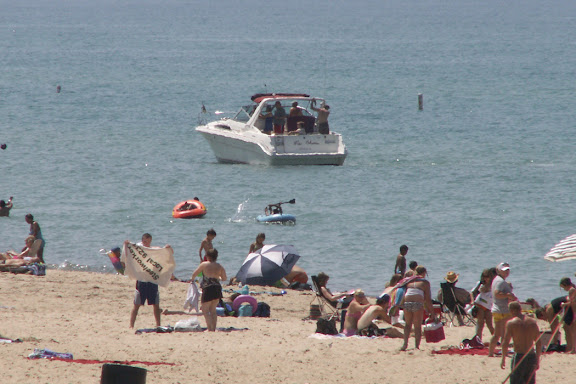









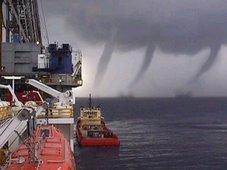
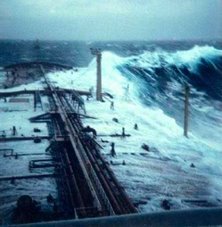
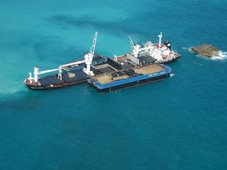
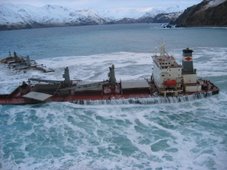
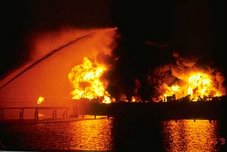
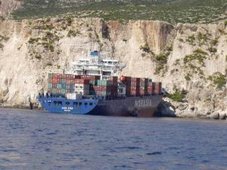


![Validate my RSS feed [Valid RSS]](valid-rss.png)
3 comments:
motor vessel inside the swim bouys?
Stevet..Bingo
Power vessel inside an "Exclusion Zone "Swim Area" No Boats Allowed. And yes this boat was reported....
Send me an email....
Best
Robin Storm
Post a Comment